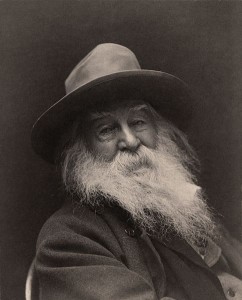 A recent post on Facebook led me to a blog by one Kate Bartolotta who reminded me that cheesy inspirational quips from self-proclaimed authorities are meant to draw an audience. Many profess their goal is to change the world, but scratch the surface and I’ll bet lurking beneath is a book they are trying to sell. I admire her and others for building their platforms and doing the things the experts say authors should be doing for marketing, but ultimately every word that comes from such people is designed to fatten their wallets.
A recent post on Facebook led me to a blog by one Kate Bartolotta who reminded me that cheesy inspirational quips from self-proclaimed authorities are meant to draw an audience. Many profess their goal is to change the world, but scratch the surface and I’ll bet lurking beneath is a book they are trying to sell. I admire her and others for building their platforms and doing the things the experts say authors should be doing for marketing, but ultimately every word that comes from such people is designed to fatten their wallets.
I take particular issue with her assertion that individuals and their problems are “both infinitesimally small.” Yes, in the grand scheme of things that is true if we allow ourselves to be put on the same level as, say, bacteria. Oh yes, I hear you screaming that even bacteria can be very powerful, blah blah blah – that’s not her point though. She’s saying that no matter how big our problems seem to us they are irrelevant in the larger scheme of things; an attitude that has probably killed more people than Hitler.
Star Trek The Original Series had a lot of cheesy lessons on how the world should be on the grand scale, but it was the small stuff that really stood out. I mean it’s pretty damned obvious that not blowing up the world is a good thing. Not so obvious is the deeper meaning of Bones’ lines to Kirk in Balance of Terror:
“In this galaxy there’s a mathematical probability of three million Earth type planets, and in all the universe three million million galaxies like this, and in all of that, and perhaps more, only one of each of us. Don’t destroy the one named Kirk.”
Instead of belittling us as mere unimportant specks such celebrates and elevates us and gives us the importance that goes along with the gift of life. Perhaps that I get it is why I am both tormented and inspired to be more, to do more, and why Walt Whitman resonates so profoundly with me.
Oh me! O life! of the questions of these recurring,
Of the endless traines of the faithless, of cities fill’d with the
foolish,
Of myself forever reproaching myself, (for who more foolish
than I, and who more faithless?)
Of eyes that vainly crave the light, of the objects mean, of the
struggle ever renew’d
Of the poor results of all, of the plodding and sordid crowds I
see around me,
Of the empty and useless years of the rest, with the rest me
intertwined,
The question, O me! so sad, recurring–What good amid these,
O me, O life?
Answer.
That you are here–that life exists and identity,
That the powerful play goes on, and you may contribute a verse.
“What will your verse be?” asks John Keating of his English class in Dead Poets Society. What will my verse be indeed – Whitman’s been dead more than a hundred and twenty years and yet it feels like he’s asking me right here, right now. If I were to believe the Kate Bartolotta’s of the world I might feel insignificant enough to give up on even trying to contribute anything at all.
